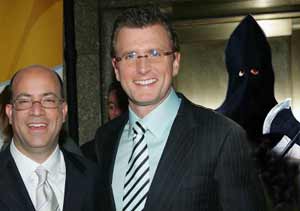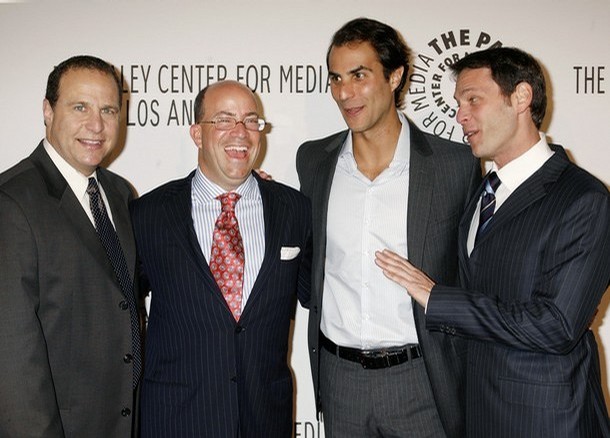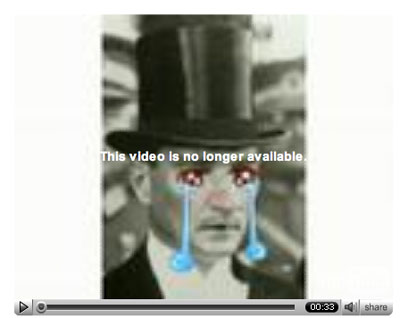Big Media’s ‘TV Everywhere’ Approach: A Top-Down Vision of the World(WideWeb)
Denise Mann / University of California – Los Angeles

IN 2008, NBC UNIVERSAL CEO JEFF ZUCKER famously complained that today’s network television leaders have a choice between staying the course by focusing on “analog dollars” or gambling on an as yet uncharted online future in order to earn “digital pennies.” Stated in this fashion, it seems foolhardy for big media leaders to radically alter their traditional business practices; however, if, as Heroes creator Tim Kring suggests: “In five years, the idea of broadcast will be gone…” then this is no time for the networks to be waiting on the sidelines.1 Most agree that big media needs to take steps to avoid the fate of a recording industry, blindsided by Napster and by a Net generation that has grown accustomed to downloading and sharing media for free. This essay explores the “official” snapshot of NBC’s top-down approach to the future of entertainment that has emerged since 2006 in the trade press, corporate public relations releases, and Zucker’s own public proclamations and managerial tactics. The results are often inconsistent and schizophrenic, exposing the fault line running through the commercial logic of today’s culture industry; at the same time, there is mounting evidence that an anarchist spirit and anti-mass media agenda is taking hold, as evidenced by the countless “unofficial” posts and photo mash-ups targeting Zucker that are filling the blogosphere.

IN A HEROES WIKI, when asked why the Heroes online content had been changed from “Heroes 360” to “Heroes Evolutions,” newly-appointed NBC Senior Producer Joe Tolerico explained that “‘Heroes 360’ was so 2006.”2 On the one hand, the name change was presumably an effort to downplay the network’s corporate agenda and emphasize the social site’s creative links to the series proper. On the other hand, Tolerico was no doubt eager to gloss over the massive restructuring that has taken place at NBC in three short years. These tumultuous years of experimentation over the digital future of the network were officially launched when Zucker announced to advertisers in 2006 that “NBC 360,” the company’s plan to add broadband, mobile and other digital extensions to its shows, would be “a major selling point as we go into the upfront.”3 Almost overnight, NBC created a large and impressive dot.com group, headed by Vivi Zigler, to oversee the network’s online strategies and integrate them into the existing network bureaucracies—development, programming, marketing, and sales. The result has been a series of massive “360 media campaigns” around fan-favorite TV series like Heroes, designed to re-energize advertisers’ flagging allegiance to network television by offering a more engaged viewer. In 2007, Zucker joined forces with Fox to create Hulu.com as a “legal” alternative to YouTube. By 2008, however, Zucker famously backtracked from his embrace of the Internet to quip that the media industry, in its haste to avoid the fate of the music industry, needed to make sure “that we do not end up trading analog dollars for digital pennies.”4 In 2009, Zucker conceded that there are “digital dimes” to be gained from online distribution, presumably in order not to undermine the much ballyhooed Fox-NBC venture, Hulu.com.5 In essence, Zucker has been alternating between telling advertisers that expensive TV series like Heroes, The Office, and Law & Order are still the biggest game in town and telling competitors at high-profile industry events like NAPTE that NBC still has expansive plans to monetize the Net. Zucker’s seasickness-inducing ebb and flow of opinion is indicative of the generalized anxiety felt not just by NBC but by a network business beset by an uncertain digital future.

WHAT A DIFFERENCE A YEAR MAKES. NBC’s corporate angst over the future has prompted a dizzying number of changes in the executive ranks over the past three years. In 2006, the newly-promoted CEO Zucker moved back East; NBC Entertainment President Kevin Riley (lauded for developing the critically-acclaimed FX series The Shield, Rescue Me, and Nip/Tuck) was still in charge of programming; and NBC had just launched Heroes with high expectations that they had located the transmedia heir apparent to the phenomenally successful Lost franchise on ABC. However, one year later, just before the May 2007 upfronts, Reilly (also credited with developing NBC’s few hits: Heroes, 30 Rock, and Deal or No Deal) was summarily dismissed.6

The talent-friendly Reilly was replaced by Marc Graboff and former agent and Hollywood hot-shot Ben Silverman, who is best known for advancing “product placement, marketing messages and advertiser ideology over the quality, creativity and independence of TV content,” according to Huffington Post blogger Jennifer L. Pozner.7

NBC Co-Chairman Ben Silverman’s tour of duty at NBC was equally short-lived. Presumably, Silverman’s self-described “rockstar” lifestyle and abusive style of doing business did not score points with either the corporate or creative communities.8 Silverman’s replacement, former cable executive Jeff Gaspin, was not a newcomer to NBC, having been inserted into the managerial ranks back in 2007. Even then, however, many questioned the logic of putting Gaspin in charge of Kevin Reilly, a seasoned and well-regarded network programming executive. Gaspin’s primary experience has been in cable, overseeing a number of NBC Universal’s cable companies, including USA, Bravo, and SciFi. Apparently, Gaspin’s appointment, then and now, is indicative of network television’s growing interest in their principal competitor’s ability to access not just Emmys and eyeballs—but subscribers.
“TV EVERYWHERE”—AN ORWELLIAN PHRASE that suggests big media will control all media, on the air and on-line—has gained considerable traction since the recent push to convert all analog TV sets to digital helped the cable companies reach a milestone of 100 million subscribers in 2009 (90% of households). These statistics have prompted Warner Bros. Inc and Comcast to test the waters by providing existing subscribers with broadband access to ALL forms of digital media—TV, cable, movies, games, social media, etc. According to Time Warner Inc CEO Jeff Bewkes, “TV Everywhere-style services would exceed the popularity of other Internet-video sites, including Google’s YouTube and Hulu.”9 Bewke’s plan makes two things apparent: NBC’s gambit to destroy YouTube and replace it with Hulu may have been for naught; and big media’s top-down, blistering vision of the future of entertainment—a subscriber-based “TV Everywhere”—may prompt an even more unmanageable hornet’s nest of protest from the bottom-up blogosphere than the anti-Zucker sentiment already on display.
TO BE CONTINUED…

Image Credits:
1.) Jeff Zucker, CEO NBC Universal
2.) NBC Universal CEO Jeff Zucker (mash-up from Media Wire Daily blog)
3.) Zucker at May 2008 Upfronts
4.) “NBC’s Jeff Zucker Sharpens Blade” (for Kevin Reilly, according to Defamer.com blog)
5.) 2007’s new, short-lived regime at NBC: Marc Graboff, Jeff Zucker, Ben Silverman, Jeff Gaspin
6.) Image used on YouTube when videos are removed
- David Kushner, “Rebel Alliance,” Fast Company.com (April 11, 2008). http://www.fastcompany.com/magazine/125/rebel-alliance.html [↩]
- Joe Tolerico, Sn. Producer, NBC, “Interview: Joe Tolerico From Heroes Wiki.” http://heroeswiki.com/Interview:Joe_Tolerico [↩]
- Jon Lafayette, “NBC 360 ‘Selling Point’ at Upfront; Zucker: Digital Important, but Linear Tops Priorities,” TelevisionWeek (May 1, 2006). http://findarticles.com/p/articles/mi_hb5268/is_200605/ai_n20456641/ [↩]
- Chris Morris, “Rejoice! Your digital pennies are now dimes,” Variety.com (March 19, 2009) http://weblogs.variety.com/technotainment/2009/03/rejoice-your-digital-pennies-are-now-dimes.html. [↩]
- ibid [↩]
- Peter Ames Carlin, “An Old-Fashioned Hollywood Immorality Tale,” IdiotBox.com (May 29, 2007). blog.oregonlive.com/peteramescarlin/2007/05/ [↩]
- Jennifer L. Pozner, “NBC’s New Head Honcho Says ‘More Product Placement, Please,” The Huffington Post.com (June 28, 2009). http://www.huffingtonpost.com/jennifer-l-pozner/nbcs-new-head-honcho-says_b_50671.html [↩]
- Nikki Finke, “NBC Shake-up: My Final Analysis,” Nikki Finke’s Deadline Hollywood Daily (May 29, 2007). www.deadlinehollywooddaily.com/…/ [↩]
- Todd Spangler, “Pay TV’s Internet Acid Test,” Multichannel News.com (July 6, 2009). www.multichannel.com [↩]
I have been using TV Everywhere for a majority of last year (2010) to current, and I can say it is the neatest and most convenient thing that I have used in a long time. I can say that being a DISH subscriber and an employee, I have the upper hand. As a subscriber, I get the best of the best before the rest of the industry even starts to think about it. As an employee, I get to see the success of such a ground breaking idea. DISH does have the only TRUE TV Everywhere, no one thus far has been able to come close. Comcast thinks that they have something similar, but being able to us a TV Everywhere application inside your home only; is NOT TV Everywhere.